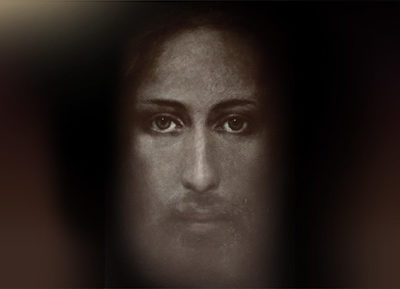IT SOUNDS LIKE JESUS got his own resurrection wrong, as some folks read the Bible?
Well, at least as Sarah Russell reads it. It’s her question, and I picked it as the Bible Question of the Week. She gets a free book for her trouble.
Here’s her question:
Most Christians believe Jesus died on Friday and rose on Sunday morning, right? So what about Matthew 12:40: “For as Jonah was in the belly of the great fish for three days and three nights, so will the Son of Man be in the heart of the earth for three days and three nights”?
“Three days and three nights” sounds a lot like 24 hours times 3, which equals 72 hours.
Jesus managed half that – about 40 hours.
He died a little before sunset on Friday, “as evening approached,” (Matthew 27:57).
His friends and family rushed to get him in the tomb before Sabbath started at sundown. That’s because they were not allowed to work on the Sabbath, and burying someone counted as work.
Bible writers report that Jesus rose before sunrise on Sunday. That would have been before 5:30 a.m., assuming we’re looking at April 5, AD 33 – which is a guess. Bible experts don’t seem to know what year Jesus was crucified.
What’s clear in the Bible reporting is that Jesus was not in the ground three full days and three full nights. He was in the ground one full day, two nights, and two partial days.
Sounds like a discrepancy. In the Holy Bible.
Let me offer three theories people use to explain away this apparent discrepancy.
I’ll start with a theory that Sarah’s dad sent with the question that was submitted. I gotta warn you, as I read through it and tried to follow the flow of thought, I think I got a buzz. So if you suffer from high blood pressure, you might want to sit down to read this.
Jesus died on Wednesday, not Friday. “The best answer I’ve heard is that Jesus actually died on Wednesday and that Passover was Thursday – making Passover the Sabbath that his body had to be removed from the cross before.
“And that the Sunday ‘morning’ when Mary Magdalene came to anoint his body was actually right after sunset Saturday (the beginning of the Jewish day) – which not only gives him three days and three nights in the tomb, but also explains why Mary M would have had trouble recognizing the risen Jesus (since it would have been dark).
“But, of course, that goes up against the traditional Christian belief that the Last Supper was the Passover feast.” —Steve Grisetti
Partial days qualify as full days. One popular theory appeals to the ancient Jewish understanding of what qualified as a day. As the theory goes, any part of a day qualified as a full day. Some ancient writings do seem to confirm that. For example, if a Jewish traveler said he was going to be away on business for two days, he could leave on Monday and return as early as Tuesday morning and no one would think he had come back early to check on the wife and the pool guy.
Matthew was working a prophecy, perhaps too hard. Matthew got a little too pushy when it came to linking Jesus with Old Testament prophecies about the Messiah, some scholars say. Proving that Jesus was the Messiah was a huge deal for Matthew. He reported about 60 prophecies that he said Jesus fulfilled. That’s twice as many as the runner-up, the Gospel of Mark.
Here’s the prophecy that the Jesus quote may have been referring to, which Matthew may have slightly misquoted – according to some Bible experts:
“After two days he will revive us; the third day he will rise us up, that we may live before him,” (Hosea 6:2).
One reason some Bible experts say Matthew was overdoing it is that this particular prophecy seems taken out of context. It does not appear to be talking about the Messiah. It’s talking about the Jewish people repenting and coming back to God.
So as the argument goes, what Matthew did by quoting Jesus or – horrors – inventing the quote for Jesus was pretty much the same thing politicians do when they are trying to make a case in a political ad. They take a random sentence and use it in a way that it was not intended. For better or worse. Usually for worse.
Other Bible experts, however, insist that some prophecies in the Old Testament are intended to multitask, working a double shift: Old Testament times and New Testament times. And they would argue that the prophecies Matthew selected were exactly those kind of prophecies, which Matthew may have learned about from Jesus himself.
Those are a few theories to consider.
If you don’t like any of them, you could kick back and be happy that Jesus rose from the dead whenever he did.



Thanks, Steve. I love that you aren’t afraid to question traditional beliefs!
Too often people cling so tightly that traditional beliefs that they’ll bend the Bible to support these beliefs rather than consider the possibility that the Bible is right and tradition might be wrong.
Even if the solutions aren’t obvious, it’s nice to see people at least thinking about them.
Thank you Steve for your dedication to this BLOG…this question comes up over and over and there are so many good explanations — some too detailed for my pea brain. I believe in the traditional view because it is both historical and the expression “3 Days and 3 Nights” does not always mean literal 24 hour periods. The disciples on the road of Emmaeus said, “Sunday was the third day.” I find that most people who have this view believe in a Saturday Resurrection to support their view of what day of the week they worship God. You hit the nail on the head, the important thing is that Christ arose and is alive and like you always say, “It doesn’t matter” LOL.
All the synoptic gospels records Jesus died at 300 in the afternoon at the time of the evening sacrifice and that they took him down of the cross before the Sabbath which would have started at 600 PM that same day
I wonder if the chief priests broke the Sabbath by going to pilate secured Jesus tomb and posting a guard. Matthew records that this was done the day after preparation day which would have been Saturday lol